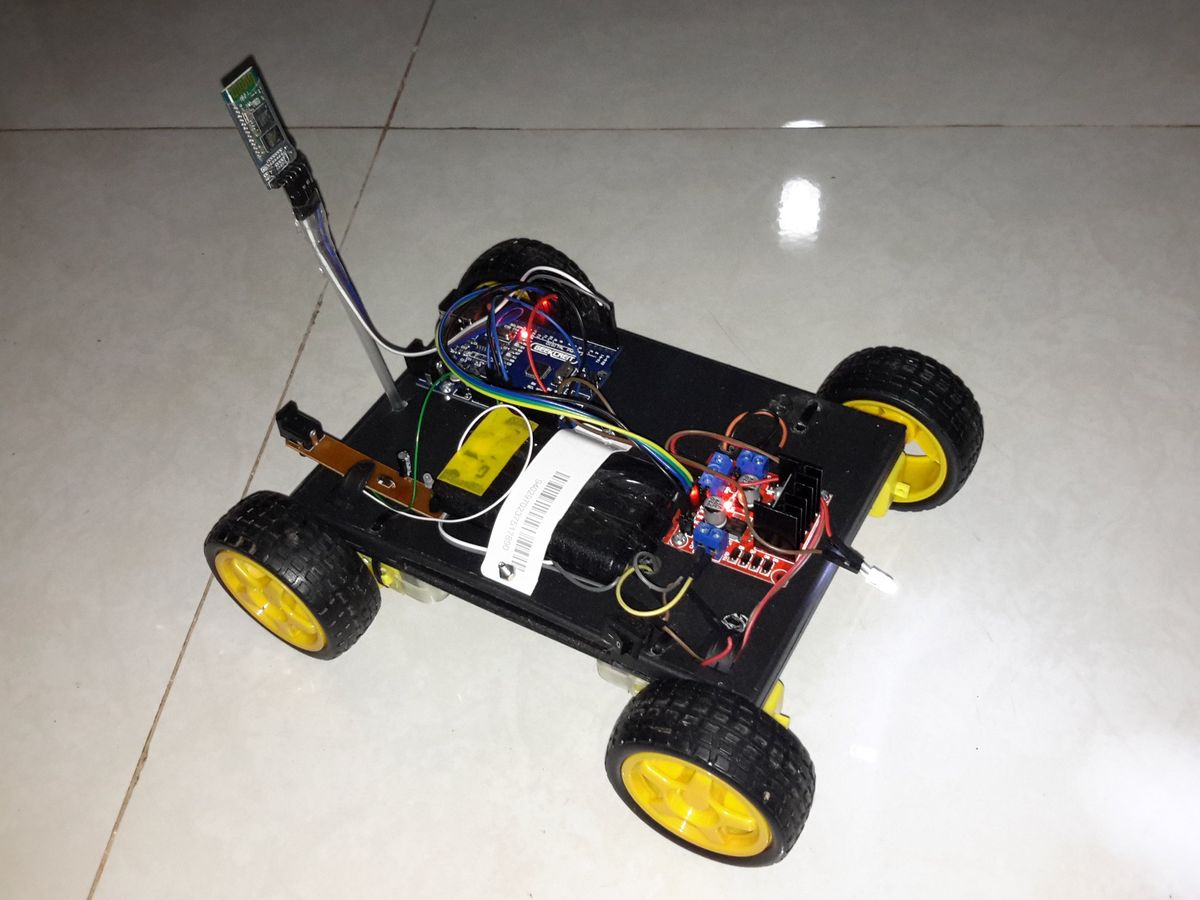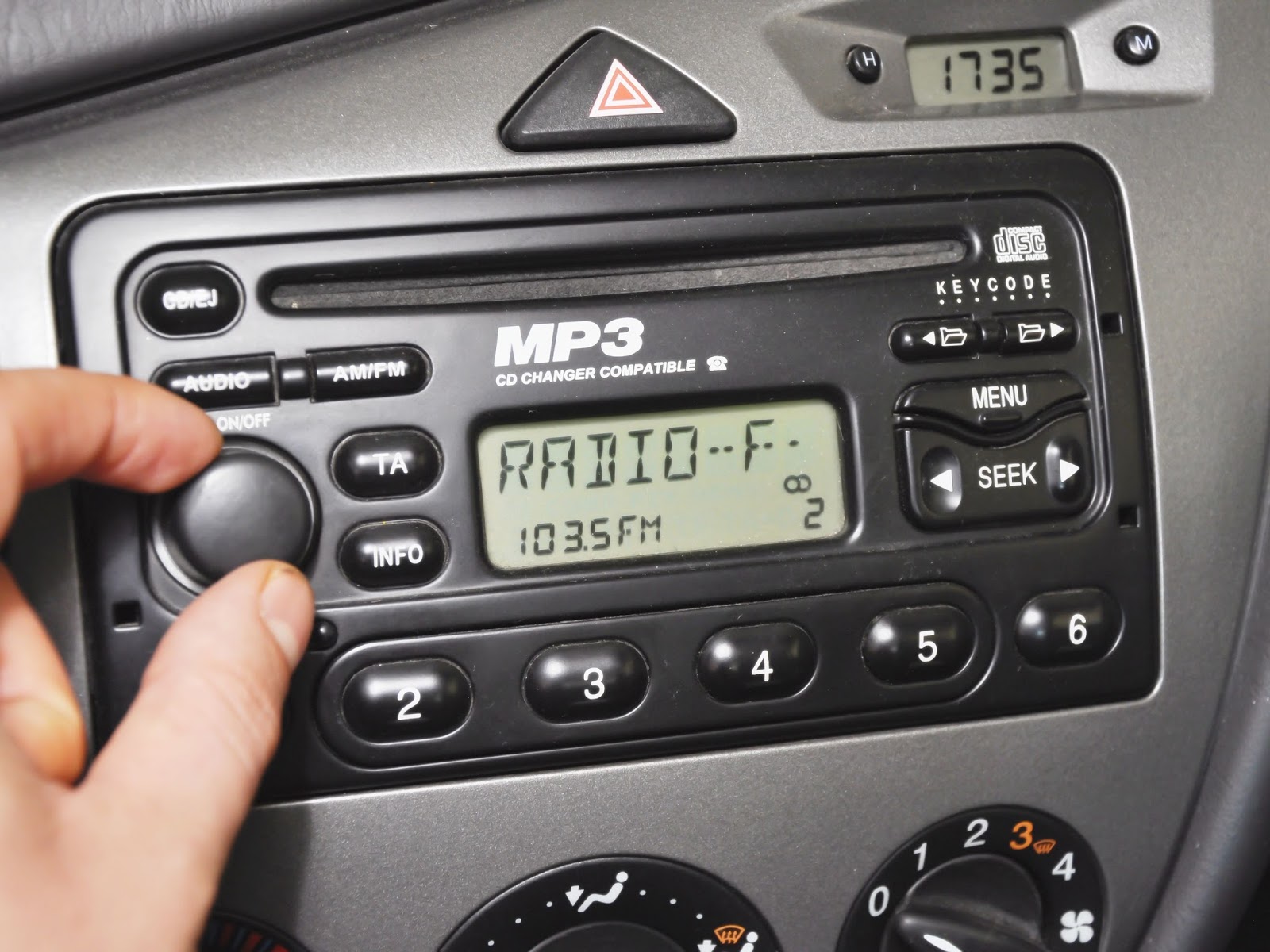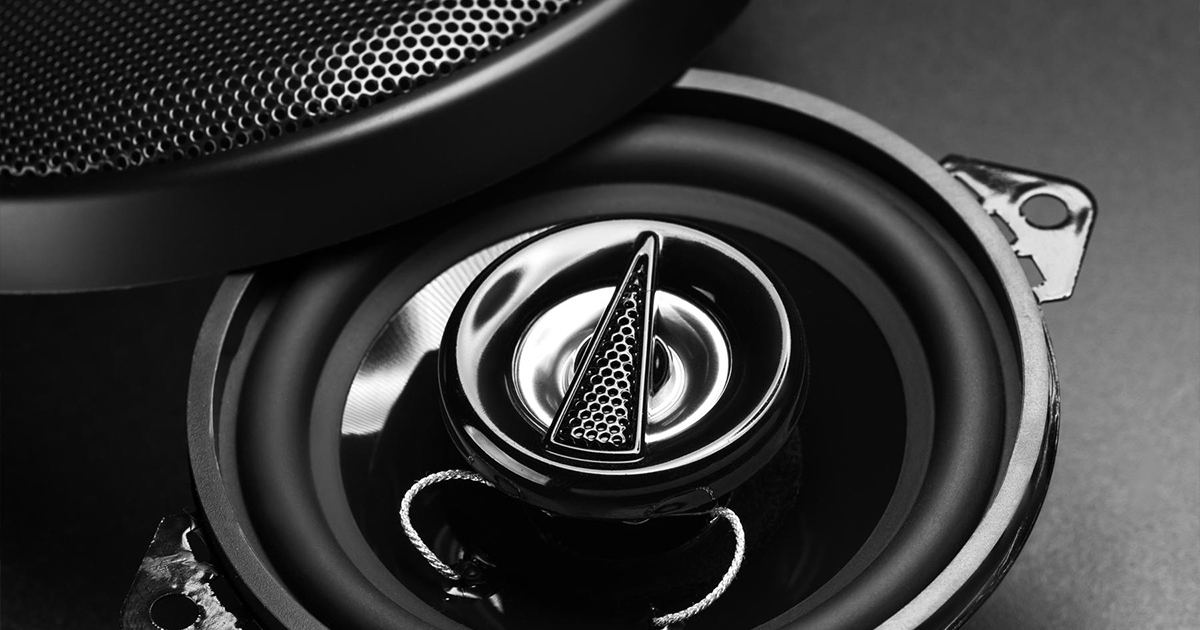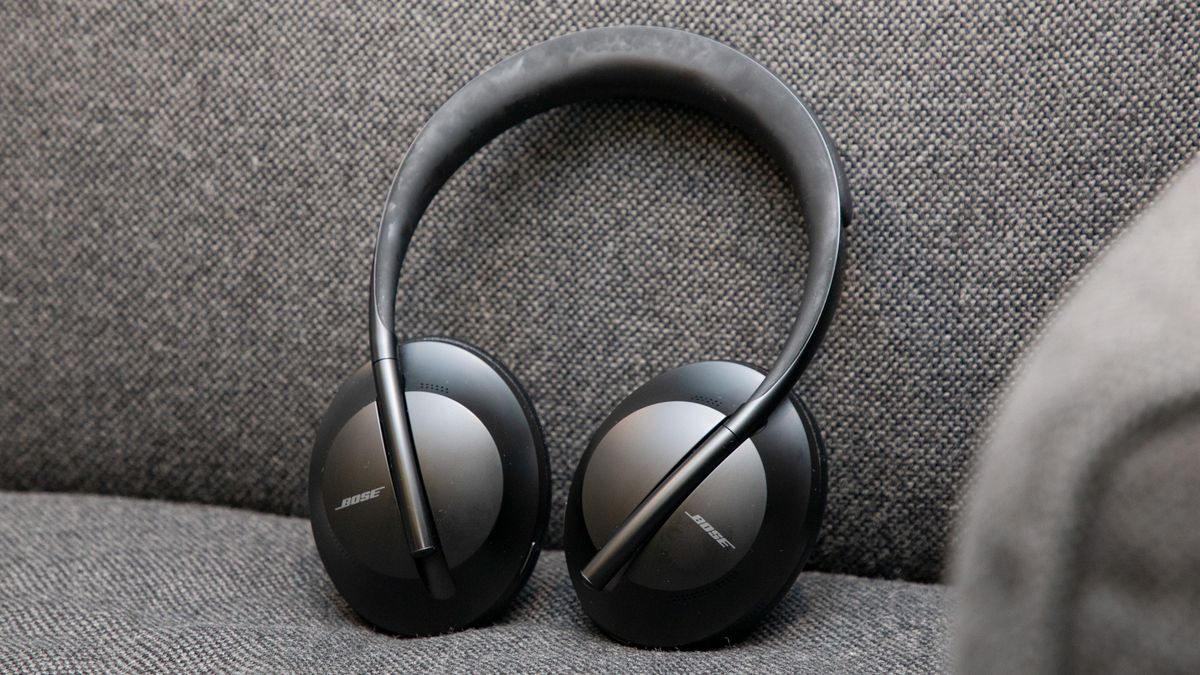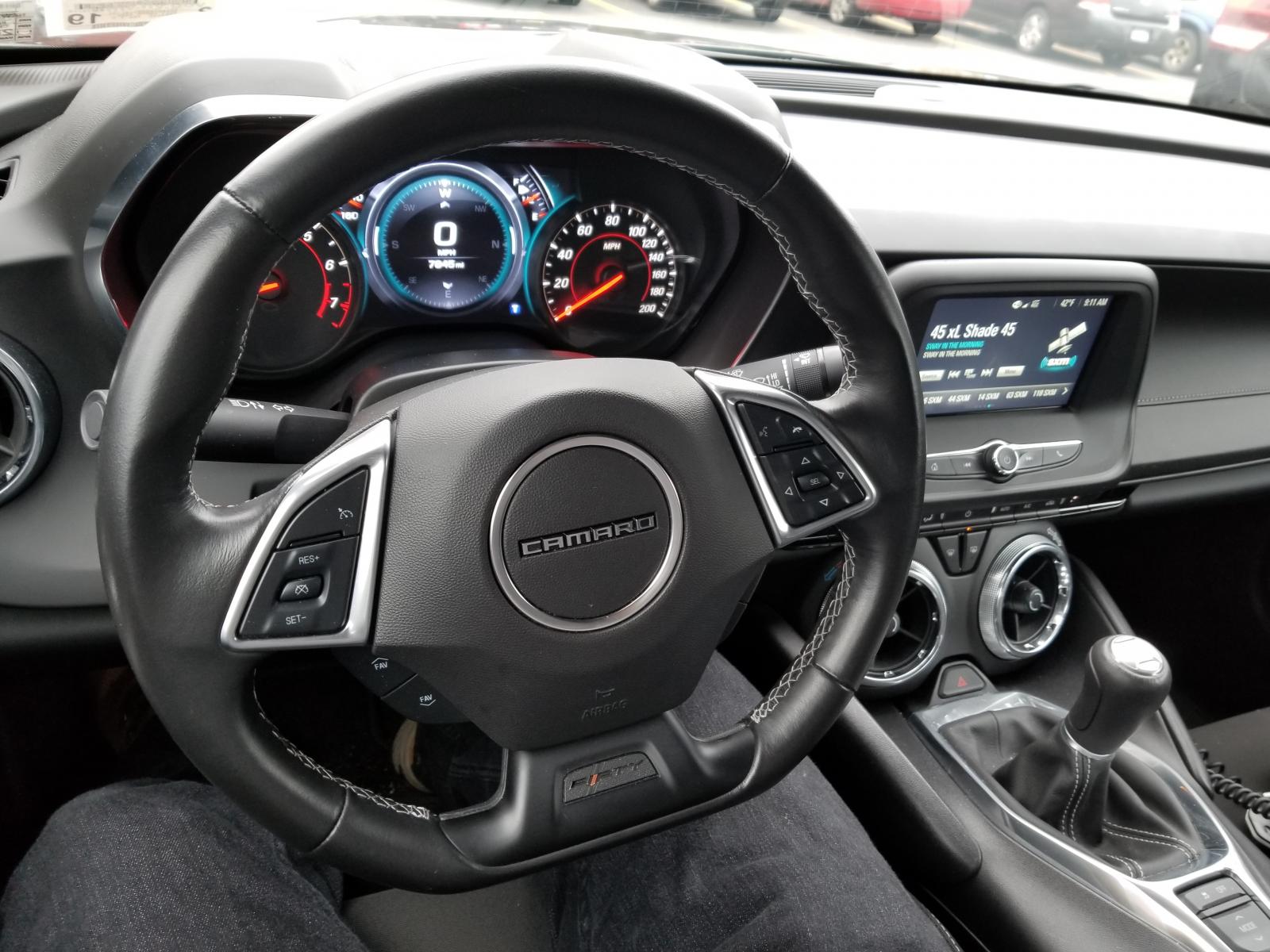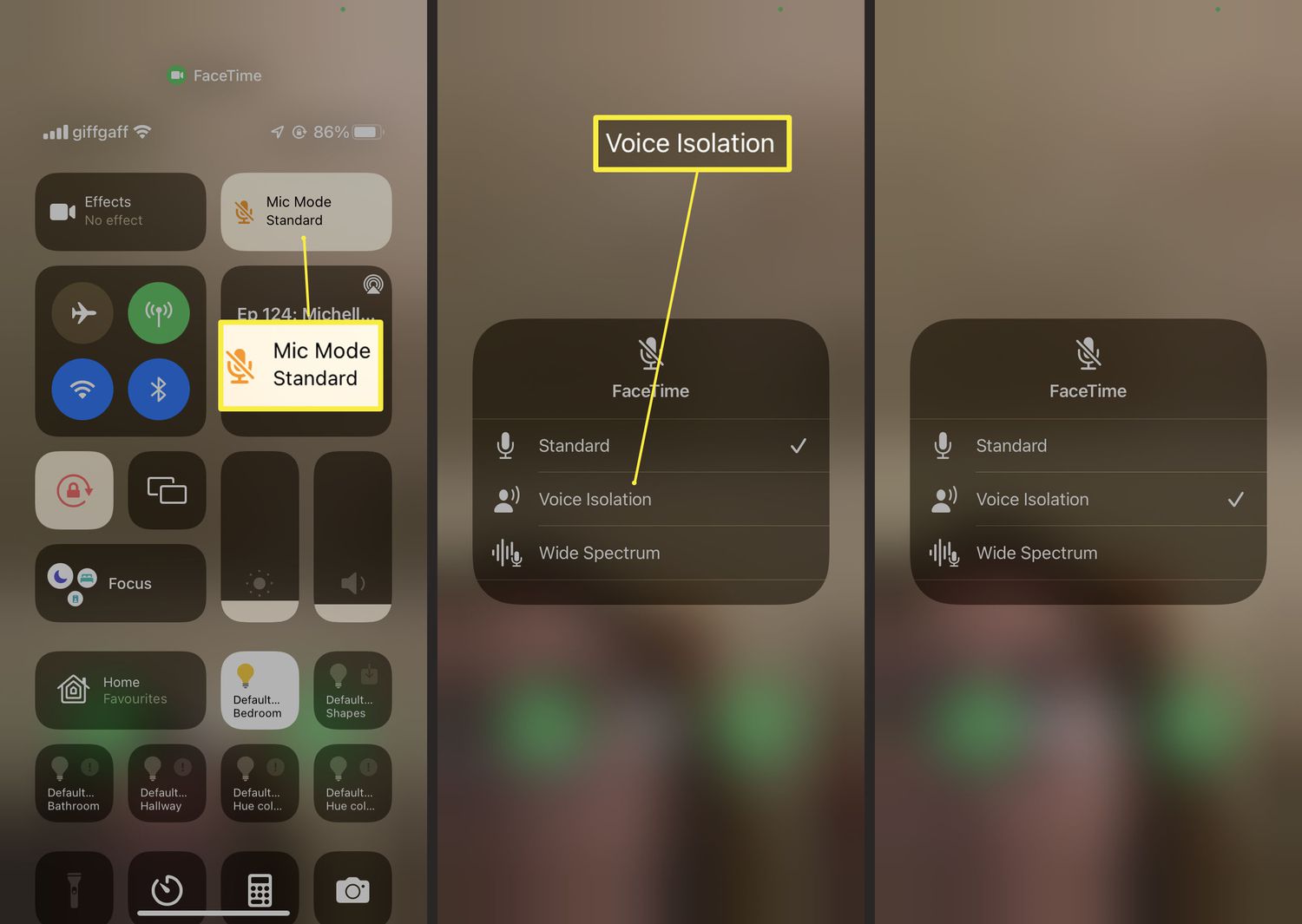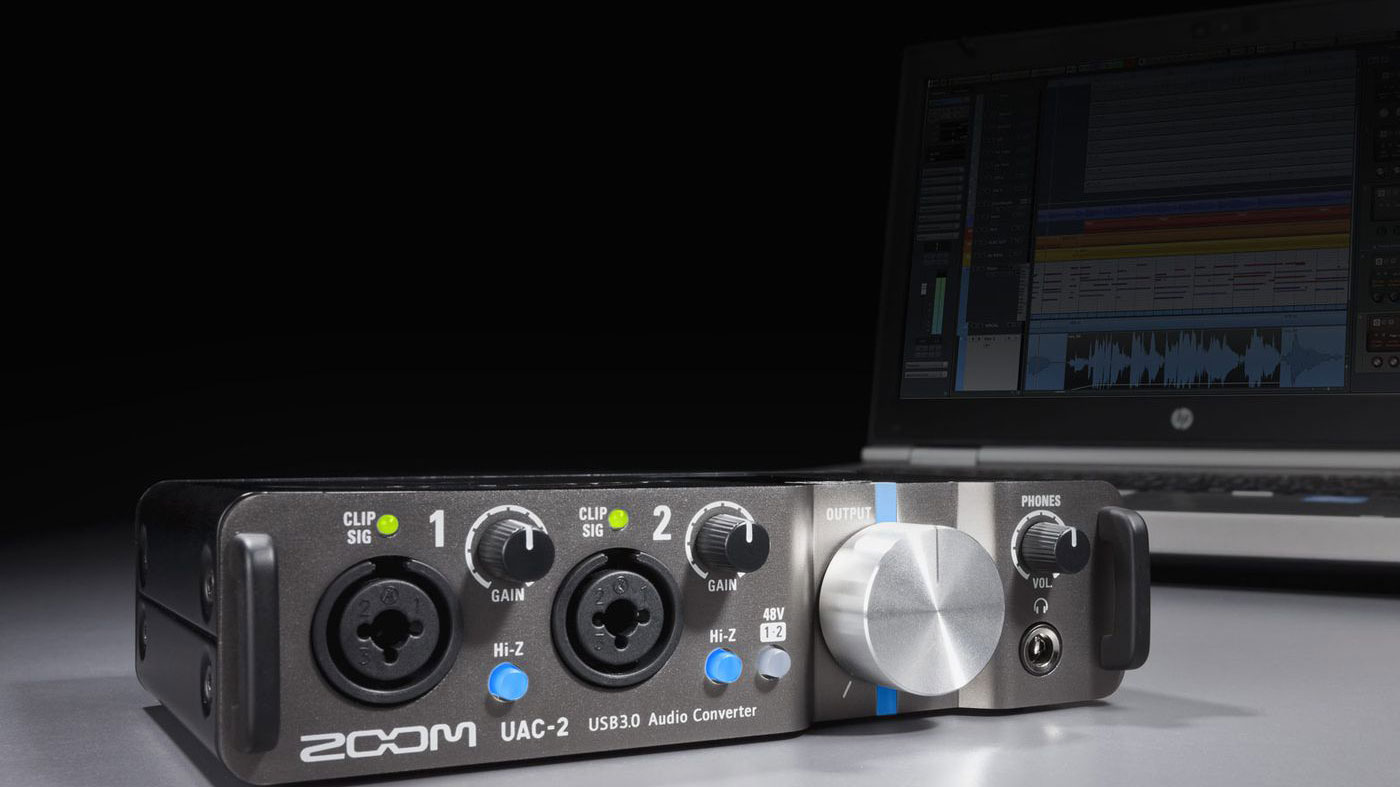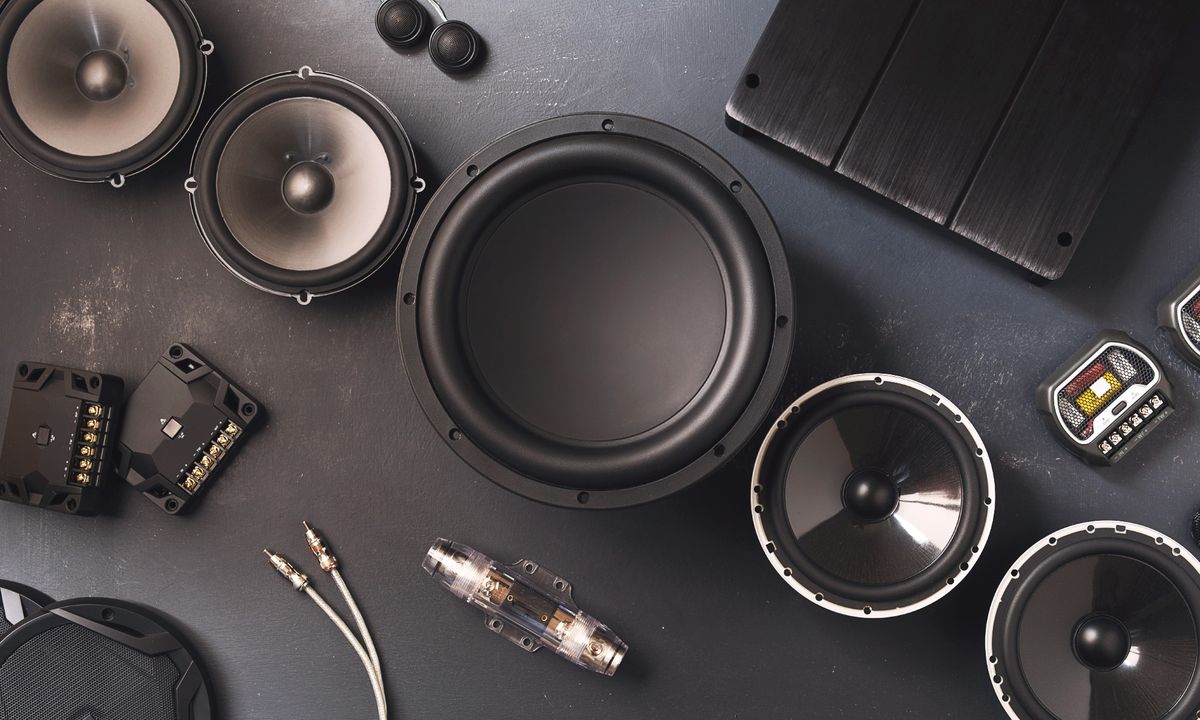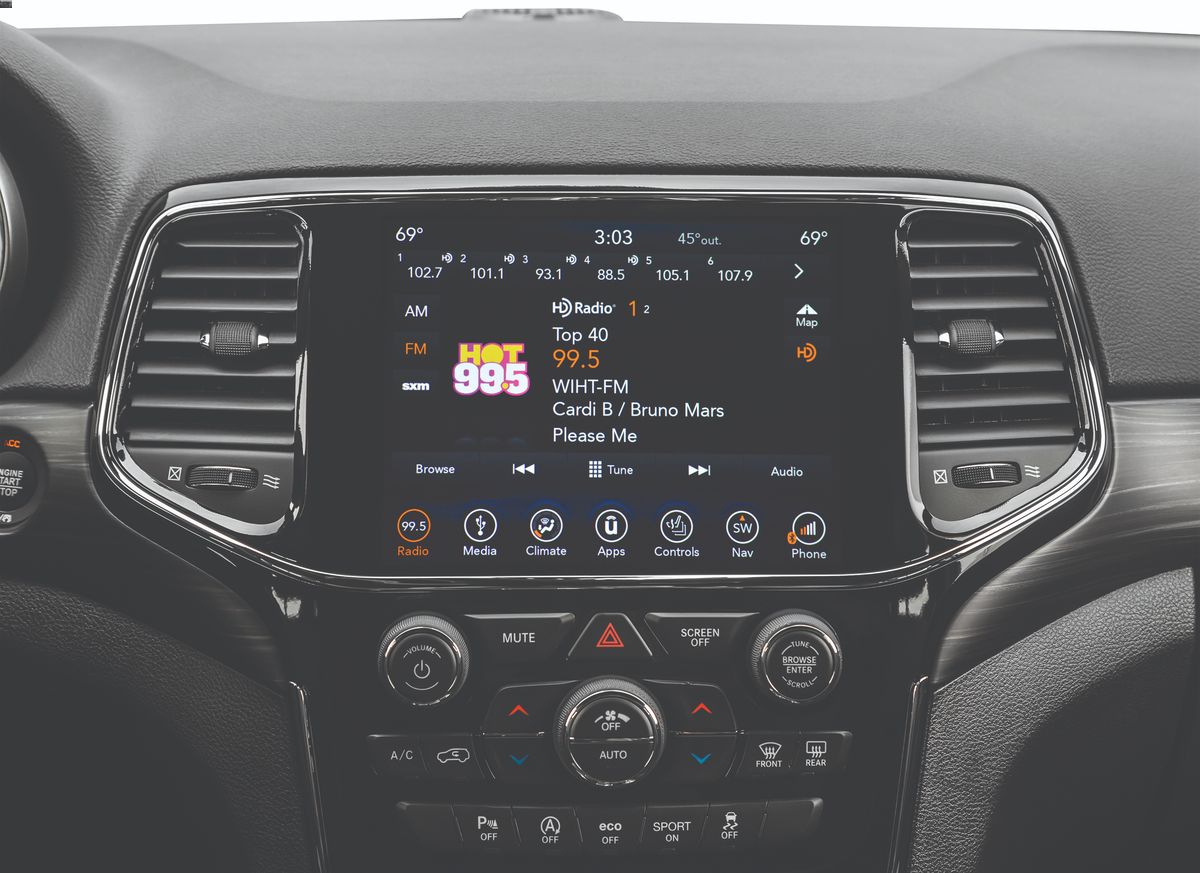Home>Devices & Equipment>Radio>Car Speakers Making Static Noise When Radio Is Off


Radio
Car Speakers Making Static Noise When Radio Is Off
Modified: January 26, 2024
Find out why your car speakers are making static noise even when the radio is off. Discover solutions to fix the issue and enjoy uninterrupted audio quality.
(Many of the links in this article redirect to a specific reviewed product. Your purchase of these products through affiliate links helps to generate commission for AudioLover.com, at no extra cost. Learn more)
Table of Contents
- Introduction
- Causes of Static Noise from Car Speakers
- Electrical Interference
- Grounding Issues
- Poor Speaker Installation
- Amplifier Problems
- Radio Frequency Interference
- How to Troubleshoot and Fix Static Noise from Car Speakers
- Check the Electrical System
- Inspect Ground Connections
- Verify Speaker Installation
- Test and Repair Amplifier
- Eliminate Radio Frequency Interference
- Conclusion
Introduction
Car speakers are an essential component of any car audio system, providing us with the joy of listening to our favorite music or radio programs while on the road. However, sometimes these speakers can produce annoying static noise, even when the radio is turned off. This unwanted noise can be frustrating and detract from the overall audio experience.
Understanding the causes of static noise from car speakers can help us troubleshoot and fix the issue, ensuring that we can enjoy crystal clear audio in our vehicles. In this article, we will explore the various reasons why car speakers may produce static noise even when the radio is off, and provide some possible solutions to resolve the issue.
There are several underlying factors that can contribute to static noise from car speakers. These include electrical interference, grounding issues, poor speaker installation, amplifier problems, and radio frequency interference. By identifying the root cause, we can effectively troubleshoot and eliminate the static noise.
It’s important to note that the information provided in this article is meant as a general guide. It’s always recommended to consult a professional car audio technician for a proper diagnosis and repair, especially if you’re not comfortable working with the electrical systems of your vehicle.
Now, let’s delve into each of the potential causes of static noise from car speakers and discuss how to troubleshoot and fix them for optimal audio performance.
Causes of Static Noise from Car Speakers
When it comes to static noise from car speakers, there can be various factors at play. Here are some common causes:
- Electrical Interference: Electrical interference from the vehicle’s electrical system can lead to static noise in car speakers. This interference can be caused by faulty wiring, alternator whine, or other electrical components.
- Grounding Issues: Improper grounding can also result in static noise. Insufficient or loose ground connections can introduce unwanted noise into the audio system. It’s crucial to ensure proper grounding for both the speakers and the amplifier.
- Poor Speaker Installation: If the speakers are not installed correctly, they can cause static noise. Loose connections or improper wiring can lead to static or crackling sounds. It’s important to follow the manufacturer’s instructions when installing speakers and secure all connections properly.
- Amplifier Problems: A malfunctioning amplifier can introduce static noise into the audio system. Issues like faulty wiring, overheating, or an outdated amplifier can all contribute to the problem. Checking the amplifier’s connection and functionality is crucial when troubleshooting static noise.
- Radio Frequency Interference: Radio frequency interference (RFI) is another potential cause of static noise. RFI can come from various sources, such as nearby radio transmitters, mobile devices, or other electronic equipment in the vehicle. This interference can disrupt the audio signal and result in static noise.
Each of these factors can contribute to static noise from car speakers, and it’s important to identify the specific cause in order to fix the issue. In the following sections, we will discuss how to troubleshoot and address each of these potential causes, allowing you to enjoy clear and uninterrupted audio in your car.
Electrical Interference
Electrical interference is a common culprit when it comes to static noise from car speakers. It refers to any disruption or noise that is introduced into the electrical system and affects the audio signal. Here are a few potential causes of electrical interference:
- Faulty Wiring: Poorly insulated or damaged wiring can lead to electrical interference. Check for any loose or frayed wires in your car audio system and repair or replace them as necessary.
- Alternator Whine: Alternator whine is a high-pitched noise that usually accompanies the engine’s RPM. It is typically caused by an issue with the vehicle’s alternator or the way it is grounded. Consider consulting a car audio professional to diagnose and address this problem.
- Other Electrical Components: Other electrical components in the vehicle, such as power windows, headlights, or the ignition system, can generate electrical interference. Ensure that these components are properly shielded and grounded to minimize the chances of interference.
To troubleshoot and eliminate electrical interference, here are a few steps you can take:
- Inspect Wiring: Carefully inspect the wiring in your car audio system, paying close attention to any signs of damage or faulty connections. Replace or repair any wiring that is frayed, loose, or worn out.
- Use Shielded Cables: Consider using shielded cables for audio connections. Shielded cables can help minimize the impact of outside interference on the audio signal, reducing the chances of static noise.
- Separate Power and Audio Cables: Keep the power cables separate from the audio cables, and route them away from each other as much as possible. This helps minimize the chances of electrical interference being induced into the audio signal.
- Grounding: Ensure that all grounding points in your car audio system are clean and secure. This includes the grounding connection for the speakers, amplifier, and head unit. A solid ground connection helps reduce the chances of electrical interference.
By addressing and troubleshooting electrical interference, you can significantly reduce or eliminate static noise from your car speakers. However, if you’re not confident in doing these steps yourself, it’s always advisable to seek professional help from a car audio technician.
Grounding Issues
Grounding issues can be a major contributor to static noise from car speakers. A proper ground connection is essential for a clean and uninterrupted audio signal. Here are some common grounding issues to be aware of:
- Insufficient Grounding: If the ground connection for your car audio system is not strong enough or is improperly installed, it can lead to static noise. This can happen when the ground wire is not securely connected to a suitable grounding point.
- Loose Ground Connections: Over time, ground connections can become loose due to vibrations and movement in the vehicle. Loose ground connections can introduce unwanted noise into the audio system.
- Poor Grounding Location: The location of the grounding point can also affect the performance of your car audio system. The ground point should be clean and free from corrosion, and it should provide a solid connection to the vehicle’s chassis.
To troubleshoot grounding issues and minimize static noise, follow these steps:
- Check Ground Connections: Inspect all ground connections in your car audio system, including those for the speakers, amplifier, and head unit. Ensure that each connection is secure and tight.
- Clean Grounding Points: If you notice any dirt, rust, or corrosion at the grounding points, clean them using a wire brush or sandpaper. A clean connection can improve the effectiveness of the ground.
- Verify Grounding Location: If possible, verify that the grounding point you are using is suitable. Look for a metal part of the vehicle’s chassis that is free from paint or rust. This provides a solid and direct connection to the ground.
- Add Grounding Straps: In some cases, adding additional grounding straps or cables can help improve the ground connection. Make sure to connect these straps to a suitable grounding point in the vehicle.
By addressing grounding issues and ensuring a proper ground connection, you can significantly reduce static noise in your car speakers. However, if you’re unsure about handling the grounding yourself, it’s always a good idea to seek assistance from a professional car audio technician.
Poor Speaker Installation
Improper speaker installation can often be a cause of static noise from car speakers. When speakers are not installed correctly, they may not function optimally and can produce unwanted noise. Here are some common installation issues to be aware of:
- Loose Connections: If speaker connections are loose, it can lead to static noise. Make sure all wiring connections are secure, and check for any loose terminals or connectors.
- Incorrect Wiring: Incorrectly wiring the speakers can also cause static noise. Ensure that the positive and negative terminals of the speakers are properly connected to the corresponding terminals on the head unit or amplifier.
- Poorly Mounted Speakers: If the speakers are not securely mounted, vibrations can cause static or rattling noises. Ensure that the speakers are properly mounted and are not loose or vibrating against any surfaces.
- Inadequate Soundproofing: Soundproofing the speaker enclosures and the surrounding areas can reduce unwanted noise and vibrations. Without proper soundproofing, external noise or vibrations can interfere with the speakers, resulting in static noise.
To address poor speaker installation and minimize static noise, consider the following steps:
- Check Wiring Connections: Inspect all the wiring connections for the speakers, ensuring they are securely fastened and properly connected. Tighten any loose terminals or connectors.
- Verify Speaker Wiring: Double-check that the positive and negative speaker wires are correctly connected to the corresponding terminals on the head unit or amplifier. Incorrect wiring can introduce static noise.
- Secure Speaker Mounting: If the speakers are not securely mounted, tighten the mounting screws or brackets to eliminate any vibrations or movements. Consider using foam or rubber gaskets between the speakers and mounting surfaces to reduce vibrations.
- Soundproofing: Install soundproofing materials around the speaker enclosures and in other areas of the vehicle to minimize external noise and vibrations. This can help reduce static noise and improve overall sound quality.
By addressing poor speaker installation and ensuring proper connections and mounting, you can significantly reduce static noise from your car speakers. If you’re uncertain about the installation process, seek assistance from a professional car audio technician to ensure the best results.
Amplifier Problems
A malfunctioning amplifier can be a source of static noise in car speakers. Issues with the amplifier can disrupt the audio signal and result in unwanted noise. Here are some common amplifier problems that can lead to static noise:
- Faulty Wiring: A loose or damaged wiring connection can introduce static noise into the audio system. Inspect the wiring connections of the amplifier and ensure that they are secure and properly connected.
- Overheating: An overheating amplifier can cause static noise or even shut down. Ensure that the amplifier is receiving proper ventilation and that there are no obstructions blocking the airflow. Consider installing fans or heat sinks to help dissipate heat effectively.
- Outdated or Defective Amplifier: Amplifiers can become outdated or defective over time, leading to static noise. If your amplifier is old or experiencing issues, it may be necessary to replace it with a new one.
To troubleshoot and address amplifier problems, follow these steps:
- Inspect Wiring Connections: Check all the wiring connections of the amplifier to ensure they are secure and properly connected. Tighten any loose terminals or connectors.
- Monitor Amplifier Temperature: Keep an eye on the temperature of the amplifier while it is in use. If it appears to be overheating, take steps to improve ventilation or consider adding cooling features.
- Test with Another Amplifier: If possible, test your car audio system with a different amplifier to determine if the static noise is specifically related to the amplifier. This can help identify whether the issue lies with the amplifier or with other components.
- Consider Professional Inspection: If you suspect a more serious issue with the amplifier or are unsure about troubleshooting it yourself, consider seeking assistance from a professional car audio technician. They can diagnose the problem and recommend the necessary repairs or replacements.
By addressing amplifier problems and ensuring proper wiring and functionality, you can effectively reduce static noise from your car speakers. If you’re uncertain about working with the amplifier or troubleshooting the issue, professional help is recommended to ensure accurate diagnosis and resolution.
Radio Frequency Interference
Radio frequency interference (RFI) is another potential cause of static noise in car speakers. Radio frequencies from external sources can interfere with the audio signal, leading to static or distorted sound. Here are some common sources of radio frequency interference:
- Nearby Radio Transmitters: Strong radio signals from nearby transmitters, such as radio stations, can cause interference with your car audio system. The proximity of these transmitters to your vehicle can impact the strength and clarity of the audio signal.
- Mobile Devices: Cell phones, tablets, and other mobile devices can emit radio frequencies that interfere with the car audio system. Placing these devices too close to the speakers or audio cables can introduce unwanted noise into the audio signal.
- Other Electronic Equipment: Other electronic equipment in the vehicle, such as GPS devices, radar detectors, or even poorly shielded car alarm systems, can produce radio frequency interference. These devices can disrupt the audio signal and cause static or crackling noise.
To minimize radio frequency interference and reduce static noise, consider the following steps:
- Antenna Positioning: Properly position the antenna of your car radio to maximize the signal reception and minimize interference. Adjusting the antenna’s position can help improve the audio signal quality.
- Shielding Cables and Equipment: Use shielded cables for your audio connections to minimize the impact of external radio frequencies. Additionally, ensure that any electronic equipment in the vehicle is properly shielded to reduce interference.
- Keep Mobile Devices Away: Avoid placing mobile devices or other electronic equipment close to the speakers or audio cables. Keep them at a distance to prevent their radio frequencies from interfering with the audio signal.
- Consider Noise Filters: Install noise filters or suppressors in your car audio system. These devices can help reduce radio frequency interference and eliminate static noise.
By addressing radio frequency interference and minimizing external sources of interference, you can significantly improve the audio quality and reduce static noise in your car speakers. If the interference persists, it is advisable to seek assistance from a professional car audio technician to diagnose and resolve the issue.
How to Troubleshoot and Fix Static Noise from Car Speakers
If you’re experiencing static noise from your car speakers, there are several steps you can take to troubleshoot and resolve the issue. Here’s a guide to help you fix static noise and enjoy clear audio in your car:
- Check the Electrical System: Start by checking the electrical system of your vehicle. Ensure that the battery is in good condition and that all connections are clean, secure, and free from corrosion. A weak or faulty electrical system can contribute to static noise in the speakers.
- Inspect Ground Connections: Verify that all ground connections are properly secured and in good condition. Tighten any loose connections and clean any corrosion or dirt at the grounding points. A solid ground connection helps eliminate static noise.
- Verify Speaker Installation: Double-check the installation of your car speakers. Ensure that all connections are secure and properly wired. Make sure the speakers are mounted correctly and not vibrating against any surfaces, as this can introduce static noise.
- Test and Repair Amplifier: If you have an amplifier in your car audio system, check its connections and functionality. Inspect the wiring, ensure proper grounding, and monitor its temperature to prevent overheating. If the amplifier is malfunctioning, consider repairing or replacing it to eliminate static noise.
- Eliminate Radio Frequency Interference: Minimize radio frequency interference by properly positioning the antenna, shielding cables, and keeping mobile devices away from the speakers and audio cables. Use noise filters or suppressors to reduce interference and improve audio quality.
While these steps can help you troubleshoot and fix static noise from car speakers, it’s important to remember that every situation is unique. If you’re unsure about any step or unable to resolve the issue yourself, it’s recommended to consult a professional car audio technician for further assistance. They have the expertise and tools to diagnose and address the problem effectively.
By following these troubleshooting tips and taking the necessary steps, you can significantly improve the audio quality in your car and eliminate the annoying static noise from your speakers. Enjoy your favorite music and radio programs with pristine sound while on the road!
Check the Electrical System
When troubleshooting static noise from car speakers, it’s essential to start by checking the electrical system of your vehicle. The electrical system plays a crucial role in providing power to the audio components, and any issues can result in static noise. Here’s how to check the electrical system:
- Inspect the Battery: Ensure that the battery is functioning properly and has sufficient charge. Check for any signs of corrosion on the battery terminals and clean them if necessary. A weak or faulty battery can lead to voltage fluctuations that cause static noise in the speakers.
- Verify Power Connections: Examine the power connections to the head unit, amplifier, and speakers. Make sure that the power wires are securely connected and not frayed or damaged. Loose or faulty power connections can introduce static noise to the audio system.
- Check Fuse Box: Inspect the fuse box to see if any fuses related to the audio system are blown. Replace any blown fuses with the correct amperage rating to ensure proper power supply to the speakers and amplifier.
- Test Alternator Output: The alternator is responsible for charging the battery and powering the electrical components of the vehicle. Use a multimeter to test the alternator’s output voltage to ensure that it is within the manufacturer’s specified range. An alternator that is not functioning properly can cause electrical issues and static noise.
- Consider Voltage Stabilizer: Installing a voltage stabilizer can help regulate and stabilize the electrical current in your car. This can minimize voltage fluctuations that may contribute to static noise in the speakers.
By thoroughly checking the electrical system of your vehicle, you can identify and address any potential issues that may be causing static noise in your car speakers. However, if you’re unsure about handling the electrical components yourself, it’s advisable to seek assistance from a professional car audio technician to avoid any potential hazards and ensure accurate diagnosis and repairs.
Inspect Ground Connections
When dealing with static noise from car speakers, it’s crucial to inspect and ensure the quality of the ground connections in your audio system. Poor or faulty ground connections can introduce electrical interference, leading to static noise. Follow these steps to inspect ground connections:
- Locate Ground Points: Identify the grounding points in your car audio system, which typically include connections for the head unit, amplifier, and speakers. Common ground points include metal parts of the vehicle’s chassis.
- Check for Cleanliness: Inspect the grounding points to ensure they are clean and free from dirt, corrosion, or rust. Clean any build-up using a wire brush or sandpaper to ensure a solid connection.
- Inspect Ground Wires: Examine the ground wires connected to the audio components. Ensure they are securely fastened and not frayed or damaged. Replace any wires that show signs of wear and tear.
- Tighten Connections: Confirm that the ground connections are tight and secure. Use a wrench or pliers to tighten any loose nuts or bolts, making sure the connections are firm but not over-tightened.
- Add Additional Ground Points: In some cases, adding additional ground points can improve the overall grounding of the audio system. Ensure that these additional ground connections are securely fastened to suitable metal parts of the vehicle’s chassis.
Proper grounding is critical for minimizing static noise. It provides a reliable path for electrical currents, preventing interference that can result in unwanted noise. By inspecting and ensuring the quality of your ground connections, you can greatly improve the sound quality and reduce static noise in your car speakers.
If you are uncertain about handling the grounding connections, it’s advisable to seek assistance from a professional car audio technician. They have the expertise to properly inspect and address any grounding issues for optimal audio performance.
Verify Speaker Installation
When experiencing static noise from car speakers, it’s essential to verify the installation of the speakers themselves. Improper installation can lead to poor audio performance and introduce unwanted noise. Follow these steps to verify the speaker installation:
- Inspect Wiring Connections: Check the wiring connections of each speaker to ensure they are securely fastened. Loose or poorly connected wires can result in static noise or intermittent audio signals.
- Confirm Polarity and Phase: Verify that the positive and negative terminals of the speakers are correctly connected to the corresponding terminals on the head unit or amplifier. Incorrect polarity or phase can introduce static noise or affect the sound quality.
- Check Speaker Placement: Ensure that each speaker is placed in its designated location and properly mounted. Verify that there are no loose parts or vibrations that could contribute to static noise. Consider using foam or rubber gaskets between the speakers and mounting surfaces to minimize vibrations.
- Inspect Speaker Enclosures: If your speakers are installed in enclosures or boxes, inspect them for any signs of damage or poor construction. Loose or poorly sealed enclosures can affect the sound quality and introduce static or rattling noises.
- Test Individual Speakers: If possible, test each speaker individually to identify if a specific speaker is causing the static noise. Disconnect the other speakers and play audio through one speaker at a time to isolate the issue.
By verifying the speaker installation, you can ensure that all connections are secure, wiring is correct, and speakers are properly placed and mounted. Addressing any installation issues can significantly improve the audio quality and reduce static noise in your car speakers.
If you are unsure about the speaker installation process or encounter difficulties while troubleshooting, it’s recommended to consult a professional car audio technician for assistance. They can provide expert guidance and ensure a proper speaker installation for optimal audio performance.
Test and Repair Amplifier
If you have an amplifier in your car audio system and are experiencing static noise from your speakers, the amplifier may be the source of the issue. Testing and repairing the amplifier can help eliminate static noise and restore optimal audio quality. Here’s how to test and repair the amplifier:
- Check Wiring Connections: Inspect the wiring connections of the amplifier to ensure they are secure and properly connected. Look for any loose or damaged wires and tighten or replace them as necessary. Loose connections can introduce static noise into the audio system.
- Monitor Amplifier Temperature: Overheating can cause an amplifier to malfunction and generate static noise. Ensure that the amplifier has proper ventilation and is not obstructed by any objects that may restrict airflow. If necessary, consider installing additional cooling features, such as fans or heat sinks.
- Test with Different Source: Connect a different audio source to the amplifier (such as a portable music player or another head unit) and see if the static noise persists. If the noise disappears with a different source, it may indicate a problem with the original head unit or source device.
- Inspect Internal Components: If you are comfortable working with electronics, you can open the amplifier and inspect the internal components. Look for any signs of damage, burnt components, or loose connections. Replacing or repairing any faulty parts may resolve the static noise issue.
- Consider Professional Repair: If you are unable to identify and resolve the amplifier issues yourself, it’s recommended to seek assistance from a professional car audio technician. They have the knowledge and specialized equipment to diagnose and repair amplifier problems accurately.
By testing and repairing the amplifier, you can eliminate potential issues that may be causing static noise in your car speakers. However, if you are unsure about the amplifier repair process or encounter difficulties, it’s always best to consult a professional to ensure proper diagnosis and repair.
Eliminate Radio Frequency Interference
Radio frequency interference (RFI) is a common cause of static noise in car speakers. External radio signals can interfere with the audio system, leading to undesirable noise. To eliminate radio frequency interference and enjoy clear audio, follow these steps:
- Properly Position the Antenna: Adjust the position of your car’s antenna to maximize signal reception and minimize interference. Experiment with different angles and orientations to find the optimal position.
- Shield Audio Cables: Use shielded audio cables for your car audio system. Shielding helps to reduce the impact of external radio frequencies on the audio signal, minimizing the chances of interference and static noise.
- Keep Mobile Devices Away: Avoid placing mobile phones, tablets, or other electronic devices in close proximity to the speakers or audio cables. These devices can emit radio frequencies that may interfere with the audio signal. Keep them at a distance to mitigate the risk of interference.
- Minimize Electronic Equipment Interference: Be mindful of other electronic equipment in your vehicle that may generate radio frequency interference. GPS devices, radar detectors, or poorly shielded car alarm systems can introduce unwanted noise. Ensure these devices are properly shielded and positioned away from the audio system components.
- Use Noise Filters or Suppressors: Install noise filters or suppressors in your car audio system. These devices help to reduce radio frequency interference by filtering out unwanted signals, allowing for cleaner audio. Consult a professional for guidance in selecting and installing the appropriate filters for your system.
By taking proactive measures to eliminate radio frequency interference, you can significantly reduce static noise and enjoy clearer audio in your car. However, note that complete elimination of external interference may not always be possible. In such cases, minimizing the impact of interference is the goal to achieve optimal audio quality.
If you continue to experience static noise despite your efforts, consider seeking assistance from a professional car audio technician. They can provide further guidance and specialized solutions to address radio frequency interference specific to your vehicle and audio system.
Conclusion
Static noise from car speakers can be a frustrating issue that hampers the audio experience while driving. However, by understanding the various causes of static noise and following proper troubleshooting steps, you can successfully eliminate the unwanted noise and enjoy clear audio in your vehicle.
Throughout this article, we examined common causes of static noise, such as electrical interference, grounding issues, poor speaker installation, amplifier problems, and radio frequency interference. By identifying and addressing these factors, you can significantly reduce or even eliminate static noise from your car speakers.
It’s crucial to start by checking the electrical system and ensuring a strong and stable power source. Inspecting ground connections and verifying the speaker installation are essential steps to guarantee proper grounding and secure connections. Troubleshooting and repairing the amplifier can help resolve issues related to its wiring or overheating. Lastly, minimizing radio frequency interference through proper positioning, shielding, and the use of noise filters can go a long way in eliminating unwanted noise.
However, if you encounter difficulties or are unsure about handling any of these steps, it is always recommended to seek assistance from a professional car audio technician. They possess the expertise and knowledge to diagnose and resolve complex issues in your audio system.
By following the troubleshooting steps outlined in this article, you can improve the audio quality in your car and eliminate the bothersome static noise. Enjoy the pleasure of crystal clear sound while driving, making your journeys even more enjoyable and music-filled.

